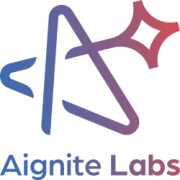AI is everywhere right now. Promising to save time, automate the repetitive stuff, and even make better management decisions. And while there’s plenty of truth in that, there’s also a darker, messier side that we need to having an understanding of to be able to steer the AI ship successfully.
If you’re in a leadership role and trying to make sense of what AI means for your business, here’s what you really need to be aware of beyond the hype.
1. Job Displacement vs Human Enhancement
AI absolutely will impact roles… but not all in the same way. The biggest risk isn’t the tech itself, it’s short-sighted decision-making.
There’s a real temptation to see AI as a route to cutting costs by reducing headcount. But long-term value lies in enhancing human capability, not replacing it. The businesses that come out ahead will be the ones who automate the right things while doubling down on human judgment, creativity, and relationship-building.
Strategy tip: Use AI to eliminate friction, not people.
2. Loss of Human Judgement & Over-Reliance on Tech
When people stop thinking critically and start blindly accepting AI-generated outputs, business risk increases.
We all talk about “gut feeling” or intuition but it’s really your brain processing thousands of subconscious cues. Over-reliance on AI dulls that instinct. And when something feels “off,” you might not catch it until it’s too late.
Develop internal guardrails. Use AI as a tool, not a decision-maker.
3. Privacy, Phishing & Data Misuse
AI thrives on data – and that’s where many organisations are most vulnerable.
From customer records and internal documents to voice recordings and emails, every data source is a potential point of exploitation. AI-powered phishing scams are already capable of mimicking voices, writing styles, and entire email threads. The more data you feed into tools without proper safeguards, the greater the risk of a breach or impersonation.
Reality check: One leaked dataset can undo years of brand trust.
4. Bias in Algorithms & Ethical Blind Spots
AI is only as good as the data it’s trained on, and that data can be biased.
Whether it’s in recruitment, lending decisions, or medical diagnostics, AI can reinforce existing inequalities if the underlying data isn’t audited. Worse, many organisations don’t even know what data is shaping the outputs.
Build diverse teams around AI projects. Interrogate assumptions and test for bias regularly.
5. Creative Theft & Copyright Challenges
Generative AI models often pull from existing human-made content such as images, art, writing, photography, and does so without consent or credit. The current legal frameworks are lagging behind, and there’s growing tension around ownership and fair compensation.
Future solutions may include tokenised systems that compensate creators automatically when their work is used as training data… but for now, it’s largely unregulated.
If you’re using generative tools in your business, know what they’re trained on and where the ethical lines are.
6. Existential Risks & Long-Term Dependencies
It might sound extreme, but questions around AI autonomy, neural implants, and machine-led decision-making are already being discussed in serious circles.
While much of this still belongs in future-facing debates, the psychological and societal implications of letting machines do the thinking for us are already creeping in. From children unknowingly sharing personal information with chatbots, to organisations outsourcing critical decisions to LLMs, the risk is subtle but growing.
Don’t hand over more than you’re willing to lose control of.
So What Should Business Leaders Be Doing?
AI is not inherently bad. But like any powerful tool like nuclear energy, the internet or social media, its impact depends entirely on how thoughtfully we implement and regulate it.
Here’s what matters most right now:
- Adopt AI with intention, not urgency
- Create internal policies for safe and ethical use
- Empower your teams with the skills to question and understand AI outputs
- Ensure transparency in how decisions are made, and by whom
- Protect your data like it’s your most valuable asset (because it is)
The opportunity with AI is huge, but so is the risk of rushing in blind. The businesses that lead through this wave will be the ones who combine technical capability with ethical responsibility – and keep humans firmly in the loop.




